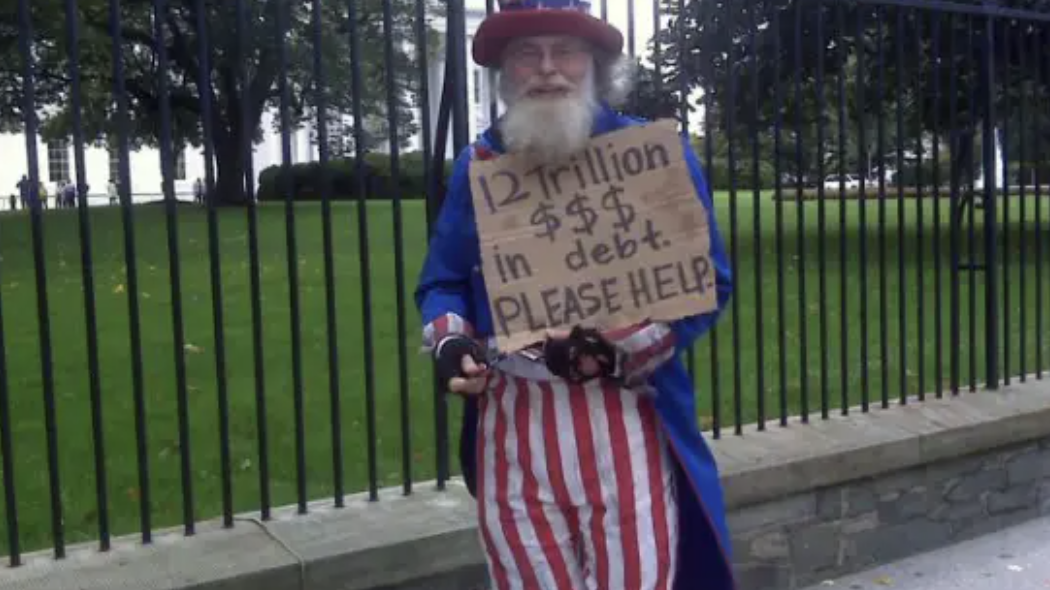It’s shocking that elected officials, most of whom do not know how economies work or how to start, build, or run a business, are passing laws and spending our money on things they know nothing about. It’s immoral.
The following meme caught my attention. While something of an exaggeration, it makes a point:

Almost every business in the United States started and prospered without the help of the government. This does not mean that once some businesses started and prospered that they did not try to use the power and authority of civil government to thwart competition or lobby for benefits.
In his fascinating book, The Myth of the Robber Barons Burton Folsom divides the entrepreneurs into two groups — “market entrepreneurs and political entrepreneurs. The market entrepreneurs, such as James J. Hill, Cornelius Vanderbilt, and John D. Rockefeller, succeeded by producing a quality product at a competitive price. The political entrepreneurs such as Edward Collins in steamships and railroads, the leaders of the Union Pacific Railroad, were men who used the power of government to succeed. They tried to gain subsidies, or in some way use government to stop competitors. The market entrepreneurs helped lead to the rise of the U. S. as a major economic power. By 1910, the U. S. dominated the world in oil, steel, and railroads led by Rockefeller, Charles Schwab (and Andrew Carnegie), and Hill. The political entrepreneurs, by contrast, were a drain on the taxpayers and a thorn in the side of the market entrepreneurs. Interestingly, the political entrepreneurs often failed without help from government [in that] they could not produce competitive products.”
Thomas Edison invented the incandescent light when there was no immediate market. Natural gas, kerosene, and in some cases whale oil helped to light homes. Power stations had to be built, wires strung, and electrical outlets placed in homes. The same was true of the Edison phonograph.
The same is nearly true with the telephone. At least Bell had an operating telegraph system that he could piggyback on. Even so, there was no market. It had to be created. Owning a phone when no one else had one was a hard sell.
Henry Ford’s Model A, first produced in 1903–04, followed by the Model C, and later Model T did not have much of a traveling superstructure. Roads were not what they are today. Entrepreneurs who saw the future took advantage of the burgeoning automobile market and opened up service stations across the country with no subsidies from the government.
Competitors entered the market forcing Ford to build a better automobile.
Today, there are subsidies for electric cars and charging stations. If electric cars can’t make it on their own, then they are not viable at this time. Governments should stay out of the industry. Like any new product, the initial cost is high. The same was true for home computers and cell phones. There were no subsidies. Now almost anyone can afford a computer and cell phone.
Most professors of economics never started or ran a business, and yet they are teaching economics. Rep. Alexandria Ocasio-Cortez’s (D-NY) website states that “she earned degrees in Economics and International Relations” from Boston University. Such a degree is no guarantee that she knows anything about day-to-day economic principles and their outcome. Many who get economic degrees from most universities are brainwashed by academic gobbledygook similar to a scene in Back to School starring Rodney Dangerfield. Dangerfield’s character is sitting in a business class where the professor is setting up a fictional company that makes widgets. Dangerfield, a prosperous businessman, asks, “What’s a Widget?” The exchange between Dangerfield and the professor is priceless. You can read it here (start with “There are two kinds of people in business today…”) and see it here: https://youtu.be/YlVDGmjz7eM. Notice the response of the students when Dangerfield’s character starts offering real-world economic advice.
Most of today’s politicians are way out of their league when it comes to most issues. They believe, however, that they are philosopher kings who know better than the rest of us. They have gained positions of power at the behest of the majority and they lord it over us in smug indifference to the way the world really works. They believe they are smart and empowered enough to change the fixed order of a God-ordained world. They are puny gods that should be deposed.

Christian Economics in One Lesson
The ultimate form of causation in human history is ethical: right vs. wrong. Modern economists do not share this view. In fact, it goes beyond this. They openly reject it. They proclaim economic analysis as value-free—this is self-deception. It is a variation of an ancient temptation: ‘Hath God said?’ Yes, He has. ‘Thou shalt not steal.’


















I am ok with ‘Thou shalt not steal.’ But, ‘Render to Caesar the things that are Caesar’s’ could have been edited out…